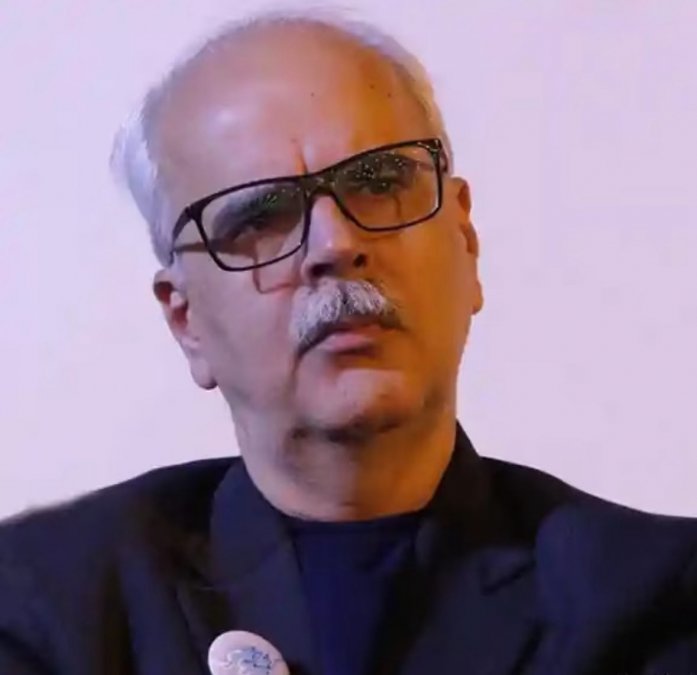Why endure mistreatment from an enemy and not from a friend?
Endurance against an enemy, why endure mistreatment from a friend? Without any reproach or allusion, in the position of a spectator, appreciation is expressed for the rational behavior of the officials of the Islamic Republic towards the aggressive actions of Israel. Probably anyone who is reluctant to see the destruction of Iran should do the same. Although defending the dignity and geography of the country is obligatory and the most important task, war is deceitful and ruthless.
I do not delve into the details of this decision. Foreign policy is more complicated than to try to summarize it in a note. During this time, when I hear the keywords in the statements of military and national officials, it indicates patience and avoidance of hastiness in decision-making. This verse of Saadi always comes to my mind: ‘If one can endure with patience the mistreatment of an enemy, why should I not be patient, so I can endure the mistreatment of a friend?’
The events of these few days, not months or years, just these one or two days pass through my mind. I think that Saeed Modarresi, no matter how much he may be in conflict intellectually with a person or a movement, is not more of an enemy to us than Netanyahu. For the security of the country, which is not trivial, he is a researcher and a university professor who has been critical and imprisoned in recent years.
I don’t understand the logic of imprisoning him. Usually, imprisonment serves two purposes: one is to remove a dangerous individual from society, and the other is to punish the guilty individual. I find it unlikely that even the judges who have sentenced Saeed Madani and others like him would ever imagine that his presence in society poses the slightest danger to anyone.
Even if the issue is having critical views, it is still unlikely that such personalities would ever think for a moment that thinking and expressing their opinions was wrong and be alerted. Nevertheless, this researcher has fallen under the judgment of the judges and is in prison. But the fact that further punishment is imposed during the punishment period of this university professor, and he is sent to a prison away from his family’s residence, becomes a source of wonder for society.
We haven’t yet digested that news when we hear that Zia Nabavi and Hasti Amiri, two students protesting the poisoning of school students, are summoned to prison to serve their sentences. Two students who have tasted imprisonment several times before, two students whose only activity was writing free of insult and anger on their social networks.
I only listen to these in just one or two days and alongside making a rational decision against Netanyahu’s warmongering, I review Beit Sa’di patiently, in a friendly or hostile manner, I try to put myself in the place of decision-makers. I think that compared to Netanyahu, any domestic critic is the same supporter that Sa’di wants to spend his patience on, not his enemy.
I try to look at the approach of decision-makers to critics from the perspective of political, security, and ideological considerations. Still, I don’t understand this logic of how one can endure someone like Netanyahu’s brutality, and consider a university professor and a fellow citizen, even if critical, not deserving of this endurance. We consider the worst scenario, where figures like Saeed Modarresi, Zia Nabavi, and Hasti Amiri are not considered allies in the intellectual system of some officials and are counted among enemies. Again, I don’t understand this contradiction of enduring the enemy and being strict with the ally.
Is it more dangerous for two students to stay in society with their limited capacity and possibly their danger confined to a few lines of conversation and criticism on social networks, or is it more prudent for the current political structure’s interests that Saeed Moini spends his imprisonment period in Evin Prison rather than becoming a news bomb, and many write about the multiple injustices that his exile would bring to his family?
As bright as the sun is, the animosity of Netanyahu and those who ally with him is not only evident with the overall political system representing Iran. The names we have heard a lot these days like Saeed Moini, Hasti Amiri, Zia Nabavi, and others are well-wishers of Iran.
Regardless of whether we sympathize with them or not, we should understand their reasoning and logic correctly. Few can doubt their good intentions for a better collective life in this country. Now, if we take a sympathetic view, we should consider Netanyahu as the enemy and these individuals as allies. Whoever is in favor of better collective living should not contemplate Sadi’s verse. Decision-makers and even their pragmatism should not lean towards the enemy more than their patience and tolerance.
Persian
مشاهده این مقاله به زبان فارسی


